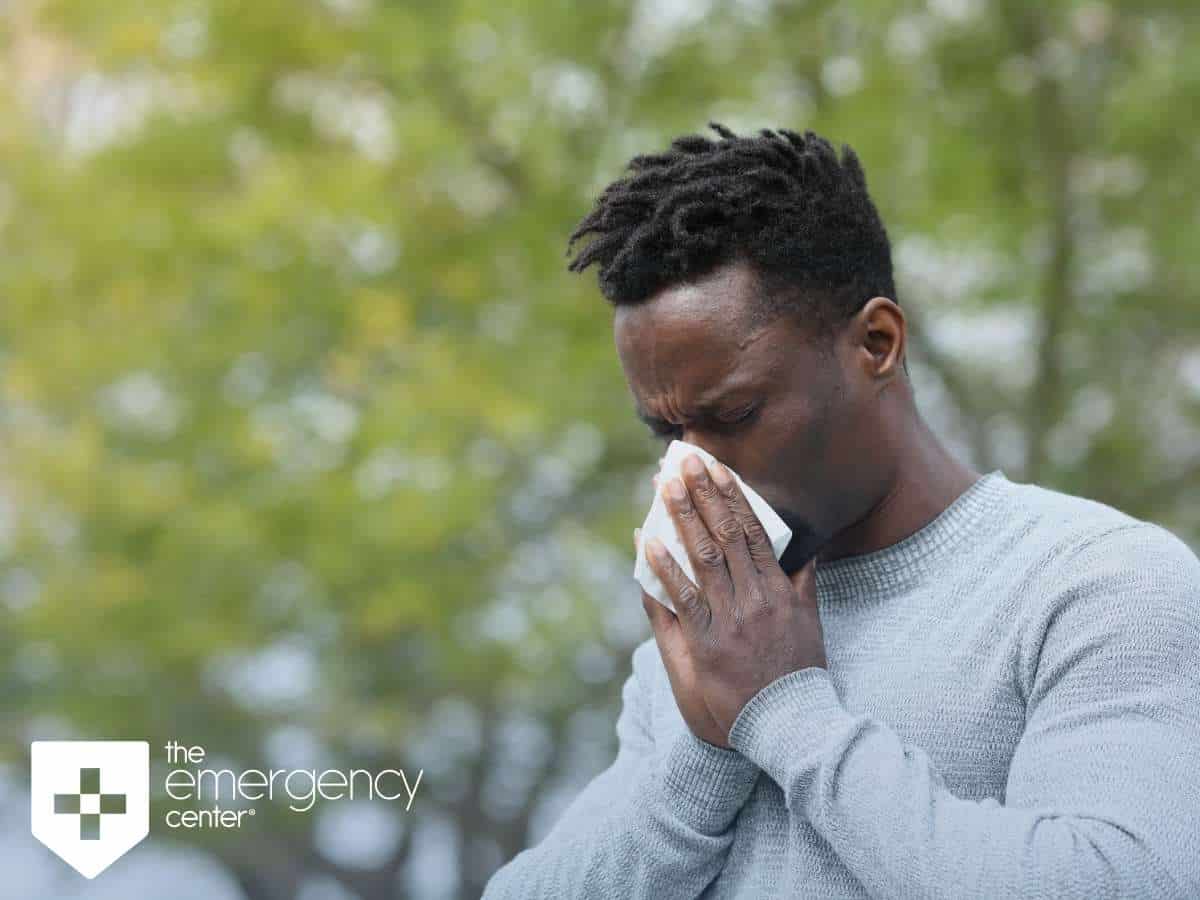Spring fever may not be a real illness (or at least not an actual physical malady), but there are plenty of other conditions common to this time of year that people should be aware of and take steps to avoid. If you do need care for a spring-related condition, though, The Emergency Center has you and your family covered.

The weather is warming, barometric pressure is seesawing, flowers are blooming and everything is turning green again. You know what that means: the return of seasonal allergies. From tree pollen to ragweed and mold to various grasses, allergens abound during spring. These allergens affect different people in different ways, and in some may lead to hay fever, which has symptoms similar to the common cold:
It’s important to realize that sensitivity to environmental allergens can change over time. So even if you were not allergic to something when you were younger, you may be now. Additionally, spring seasonal allergies—along with products like fertilizers and insecticides commonly used during spring—can trigger an asthma attack or an allergic reaction in certain individuals. Most of the time, spring allergies can be cared for at home with over-the-counter medications and nasal sprays. Many folks with even mild asthma also may need to use their inhaler.
However, if allergies ever cause hives, dizziness, difficulty breathing or significant swelling, seek urgent care at The Emergency Center.
When the weather warms up, so do highly contagious noroviruses, which can lead to tummy trouble or gastroenteritis. Symptoms may include:
These symptoms usually only last a day or two, and they may be lessened with the use of common pain and stomach medications. In the event a fever surges or symptoms last more than a few days, it’s a good idea to head to The Emergency Center to find out if it could be something more serious.
Winter is still the top time of year for common colds and the flu, but spring is the second peak season. That may be even more true this spring, as many more people are out traveling and vacationing with the significant drop in COVID-19 cases. That means more opportunity for other contagious illnesses to spread, like colds and flu, as well as other conditions like conjunctivitis—more commonly known as pink eye.
Again, if symptoms do not abate after a few days, or if you experience high fever, difficulty breathing, or uncontrolled vomiting or diarrhea, get help at The Emergency Center.
Suffering from seasonal allergies or illness may seem like a forgone conclusion for many people who always seem to come down with something during the spring months. However, there are a number of steps most anyone can take to reduce their risk or lessen the impact.
The Emergency Center
San Antonio
11320 Alamo Ranch Pkwy
San Antonio, TX 78253
Phone: 210-485-3644
Conroe
4019 I-45 N,
Conroe, Texas 77304
Phone: 936-247-9457
Is your nausea more than just an upset stomach? Learn about the causes of nausea…
Experiencing numbness or tingling? Discover the causes and know when to seek emergency care for…
Experiencing abdominal pain? Learn what it could mean by location and when to visit the…
Is your skin redness a sign of something serious? Learn about different types of skin…
Why are ER wait times so long? An emergency room physician explains key delays and…
Are you aware of the dangers of carbon monoxide? Learn prevention tips, symptoms, and how…